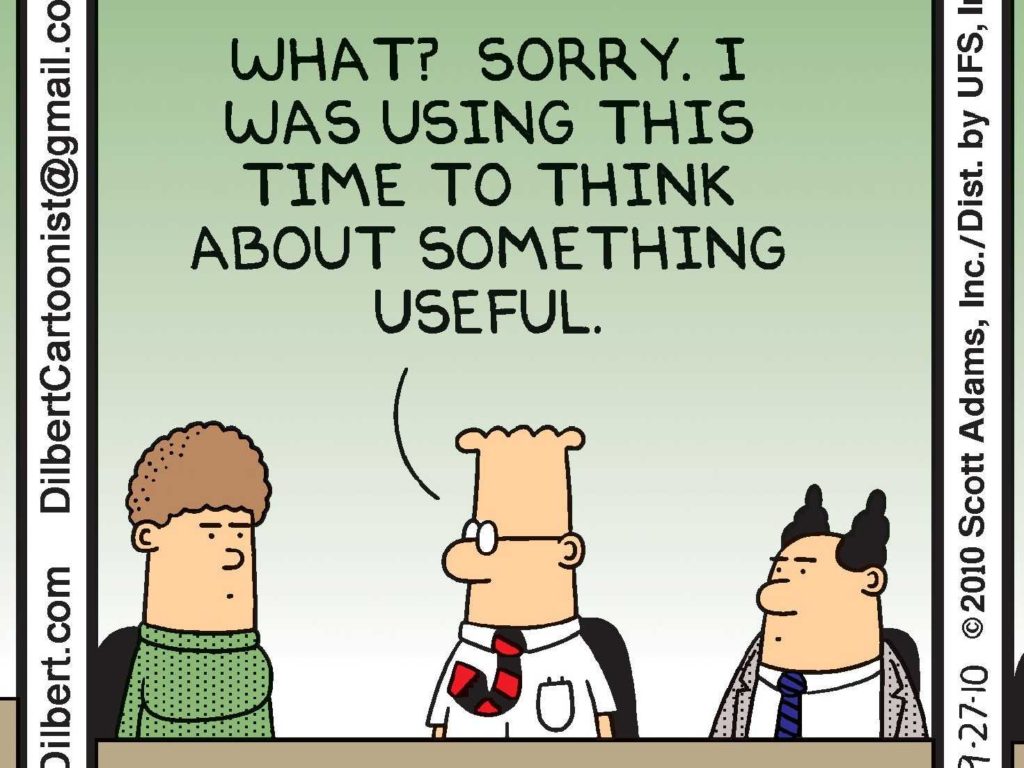A couple days ago, I was catching up with an old friend and asked him how his work week had been going. The first words out of his mouth? “It’s been pretty good other than a meeting I was in earlier today.” Wondering if a project had fallen behind schedule or if there was a conflict with his team, I pressed him for more details. He shared that, “It was the strangest thing, our VP of Marketing, who was leading the meeting, did not say a word for the first 10 minutes of a 60-minute meeting. No one in the room felt comfortable speaking other than a few nervous chuckles at our plight. He normally hosts fairly successful meetings, but it was a pretty awkward start.”
All of us have been in meetings that left us feeling like we just wasted time of our lives that we will never get back, and most of us have probably led a meeting or two that left our participants feeling this way as well. The above is an example of one of the 5 reasons your coworkers dread your meetings, so let’s take a detailed look at this one as well as the other four so that you can host more successful meetings.
Getting off on the Wrong Foot
Look, we do not need to all sing “Kumbaya” to start meetings off, but it is a nice gesture to get the conversation flowing with non-business topics. Whether it is everyone’s weekend plans, the fate of the local sports team, the Presidential election (never mind, you probably don’t want to go there), or simply asking how everyone’s day is going, it’s best to create an open, comfortable environment.
Bonus Tip: Check out some of these office ice breakers.
Have a Plan
Every meeting should have a set, written agenda that is known to all parties involved in the meeting as soon as is possible. Be sure to ask for feedback and buy-in to the agenda prior to your meeting. From prospect presentations to weekly one-on-ones, staying on task and on time is critical to the success and direction of every meeting. The worst way to start a meeting may just be, “So….what does everyone want to talk about today?”
Bonus Tip: In your meeting recap, request feedback on how closely the agenda was followed.
Be a Leader
If you are the organizer/leader of a meeting, how much speaking should you do during said meeting? The least! Dictionary.com defines meeting as, “An assembly or conference of persons for a specific purpose,” not, “An opportunity for the biggest person in the room to flap their gums.” The leader of the meeting should function as a facilitator, not a monologue speaker.
Bonus Tip: Check out the four types of questions that all facilitators should know.
Stick to the Predetermined Time Schedule
This goes for sessions/topics within the meeting as well as the time of the overall meeting. You likely have little to no idea what the rest of your meeting participants need to still accomplish within the work day following your meeting, so finish on time! No one wants to be the employee that excuses themselves out of a meeting early due to another commitment, and you should not want to be the manager that habitually creates these situations.
Bonus Tip: Here are 5 ways to be a better manager of your personal time.
Ask for Feedback
At the end of the meeting, take five minutes to go around the room and ask for each participant to rate the meeting on a scale of 1-10. No need to ask for justification, simply ask for a number. Following the responses, it may be smart to follow up individually with any participants that had an exceptionally high or low rating.
Bonus Tip: You’re a leader. You’re going to be criticized. Here’s how to deal with it.

